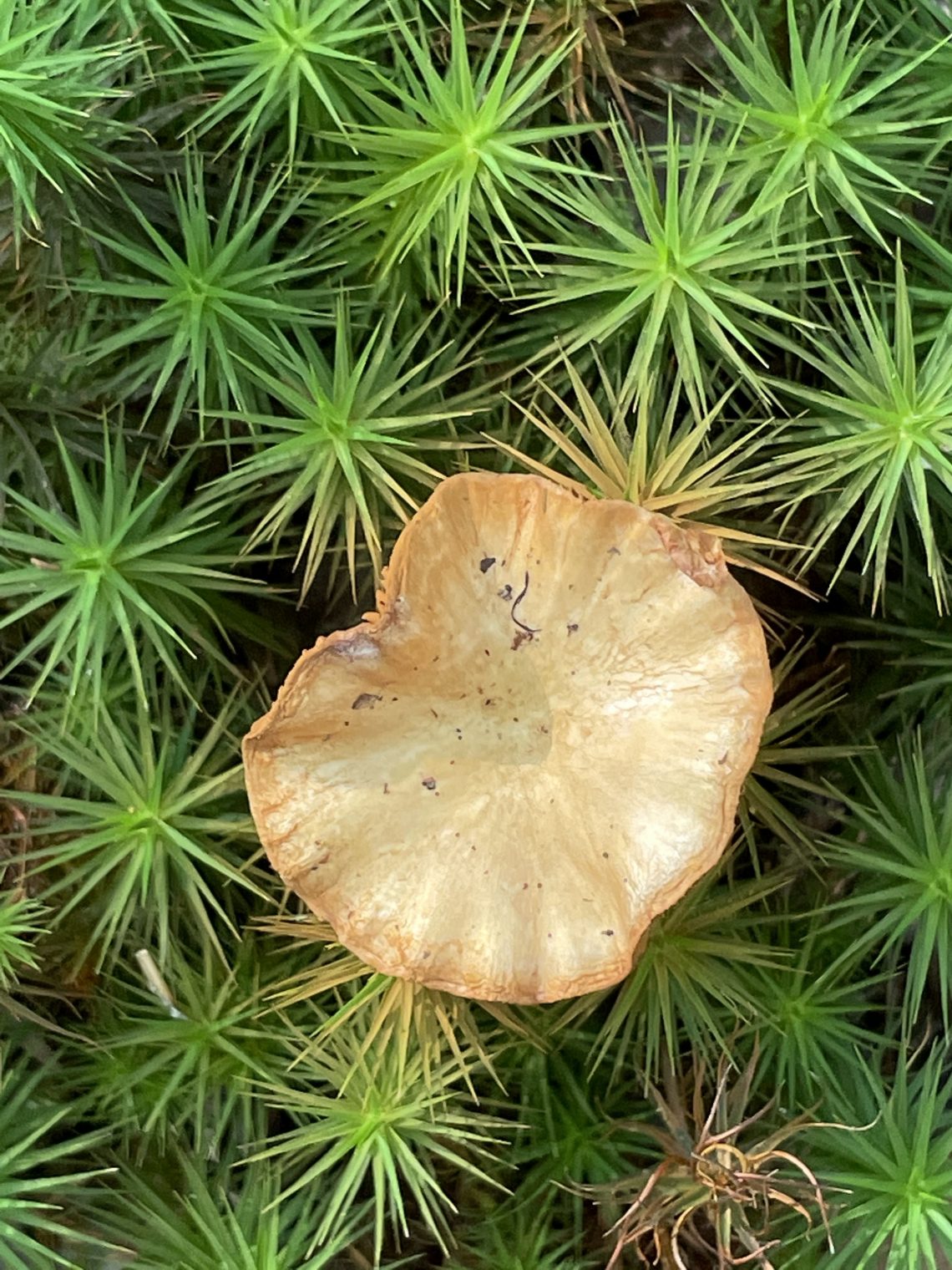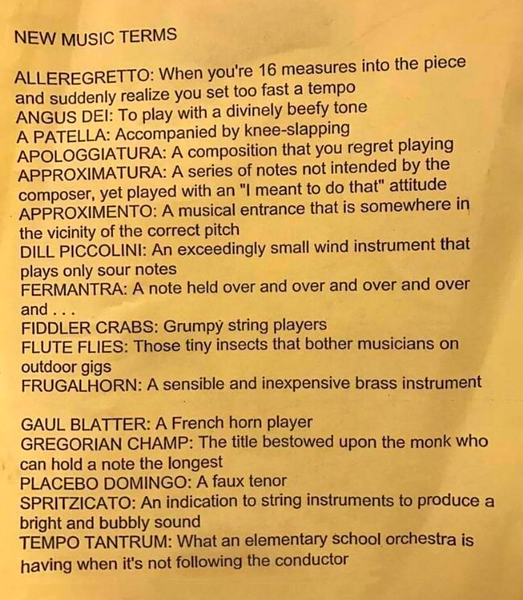
Coronavirus Tidbits #164 10/31/21
Quick links
News Diagnostics Drugs Devices Epidemiology/Infection control Tips Politics Feel good du jour Comic relief Perspective/Poem Bits of beauty
Announcements:
First, there is now a Resources Page here for the most commonly asked questions I’m getting.
Happy to continue to answer your questions/concerns as best I can, so don’t be shy about that.
New post:
CDC Sleuths Find Source Of Deadly Melioidosis Outbreak Is A Room Spray Sold At Walmart
News
FDA authorizes Pfizer vax for kids 5-11 yo
https://www.fda.gov/news-events/press-announcements/fda-authorizes-pfizer-biontech-covid-19-vaccine-emergency-use-children-5-through-11-years-age
.@US_FDA has issued an EUA for Pfizer's pediatric #Covid vaccine for children aged 5-11. https://t.co/FwSo5h6VwV
— Helen Branswell (@HelenBranswell) October 29, 2021
~ ~ ~
Among the numbers aged 5-11: 8,300 hospitalized, 5,200 MIS-C cases, 14% with long covid, 100 deaths, so benefits of vaccination far exceed risks, including myocarditis
— Prof Peter Hotez MD PhD (@PeterHotez) October 26, 2021
~ ~ ~
Merck to allow other nations to produce new COVID-19 antiviral
Merck and the United Nations-based Medicines Patent Pool (MPP) today announced a licensing deal that will allow pharmaceutical companies in other countries to make molnupiravir-an investigational antiviral to treat COVID-19-a step that would ease access in low- and middle-income countries.
First agreement of its kind for the pandemic
Results from promising clinical trials suggest that the drug, the first oral treatment of its kind for COVID-19, could be an important tool for cutting hospitalizations and deaths. Fearing a repeat of the inequitable global rollout of COVID-19 vaccine, global health experts have worried that molnupiravir would be inaccessible and expensive for lower-income countries.
Under the agreement terms, Merck (or MSD, of Kenilworth, New Jersey), Ridgeback Biotherapeutics, and Emory University will not receive sales royalties for molnupiravir as long as COVID-19 is considered a public health emergency of international concern by the World Health Organization (WHO).
~ ~ ~
Rwanda and Senegal Will Host Africa’s First COVID-19 Vaccine Manufacturing Plants
The lack of vaccine production capacity in African countries has been the subject of much concern and hand-wringing in the wake of the COVID-19 pandemic. It has become a particularly hot topic because of the gravely unequal access to COVID-19 vaccines between developed and developing countries.
Africa has limited capacity for vaccines production. Only Tunisia, Senegal, Egypt, Ethiopia, and South Africa have varying capabilities to produce and fill or finish vaccines. The largest and most integrated facility is the Biovac Institute in Cape Town.
Recently Pfizer signed a letter of intent with the institute for 100 million doses per annum. The deal covers the importation of the drug substance in bulk, the filling of vials, and the distribution of the product in Africa and elsewhere.
Africa’s shortage of manufacturing capability contrasts strongly with developing countries such as India, which has extensive pharmaceutical production capability, and Brazil.
That’s why the recent announcement by German biotechnology company BioNTech that it will be building a vaccine manufacturing facility in Rwanda, to be followed by a second in Senegal, is seen as a game changer.
The BioNTech plan involves the construction in Germany of a containerised manufacturing unit that will then be installed in Rwanda, shortening the construction period for a vaccine facility by at least a year and lowering the risk of delays. Initially, the facility will be managed and operated by BioNTech staff. But the ownership and expertise will be transferred over time to local operations. At present, such expertise does not exist in Rwanda and, based on the experience of Biovac in South Africa, could take a decade to develop.
To make a vaccine you need intellectual property as well as know how. The deal between BioNTech and the two countries includes technology transfer – this will happen in the second phase of the contract – and a license agreement that covers intellectual property rights which will remain with the company.
~ ~ ~
Study finds the SARS-CoV-2 virus can infect the inner ear
Many COVID-19 patients have reported symptoms affecting the ears, including hearing loss and tinnitus. Dizziness and balance problems can also occur, suggesting that the SARS-CoV-2 virus may be able to infect the inner ear.
https://medicalxpress.com/news/2021-10-sars-cov-virus-infect-ear.html?
~ ~ ~
3/ Pregnant people are receiving misinformation from a broad array of sources
— Neel Shah, MD (@neel_shah) October 29, 2021
53% said family and friends advised against the vaccine
29% said a medical provider advised against receiving the vaccine
Diagnostics:
What’s Driving the COVID Rapid Test Shortage?
– Demand from employers is surging, and so are prices
https://www.medpagetoday.com/special-reports/exclusives/95272?
Drugs and Vaccines:
NEW: The FDA has authorized the Pfizer COVID vaccine for kids ages 5-11, paving the way for millions of kids to be protected from COVID. @tarahaelle has the story for @sciam: https://t.co/ktgs4sXFMe
— Tanya Lewis (@tanyalewis314) October 29, 2021
~ ~ ~
Unvaccinated people who had previously recovered from a coronavirus infection were five times as likely to get Covid as people who had received both shots of the Pfizer-BioNTech or Moderna vaccines. Story by @benjmueller https://t.co/pOk0XlDTe9
— Carl Zimmer (@carlzimmer) October 29, 2021
~ ~ ~
Antidepressant Fluvoxamine cuts COVID-19 hospital cases 30% to 65%
The inexpensive antidepressant fluvoxamine reduced the need for a long emergency department (ED) observation or a hospital stay among high-risk, symptomatic COVID-19 outpatients treated within 7 days of symptom onset as much as 30% to 65%, finds a Brazilian platform clinical trial yesterday in The Lancet Global Health.
~ ~ ~
TOGETHER randomized trial: 11% (79/741) of the fluvoxamine group needed hospital care, vs 16% (119/756) of the placebo group (probability of superiority of 99·8%). Mortality in the per-protocol analysis: 1 for fluvox, 12 for placebo. Encouraging results! https://t.co/Lv0hw7pMFR pic.twitter.com/1vIH98nEbQ
— Paul Sax (@PaulSaxMD) October 27, 2021
~ ~ ~
Mix-and-match COVID vaccines ace the effectiveness test
Combining two different COVID-19 vaccines provides protection on par with that of mRNA vaccines – including protection against the Delta variant.
Nature Ewen Callaway 21 October 2021
Study after study has shown that people who receive two different COVID-19 vaccines generate potent immune responses, with side effects no worse than those caused by standard regimens.
But now, for the first time, researchers have shown that such ‘mix and match’ regimens are highly effective at preventing COVID-19 – roughly matching or even exceeding the performance of mRNA vaccines.
The studies sprang out of a natural experiment that began in March, when a number of countries partially or completely halted the use of the vaccine developed by the University of Oxford and the pharmaceutical company AstraZeneca in Cambridge, UK, because of extremely rare but serious side effects. This meant that some people who’d already received one dose of this vaccine then had a different vaccine as their second jab. Sester’s team and several others demonstrated that these mix-and-match combinations were safe and led to a strong immune response1,2,3.
Now, three teams have provided the first measurements of the effectiveness of mix-and-match regimens. The studies looked at various populations at various times – including during the rise of the hyper-infectious Delta variant – but they all agree that mix-and-match, or heterologous, vaccination is highly protective.
https://www.nature.com/articles/d41586-021-02853-4
~ ~ ~
Two vaccine doses boost antibody levels in the airways after COVID
Antibodies in the airways quickly wane after SARS-CoV-2 infection, but vaccination results in a strong increase in antibody levels, especially after two doses, according to a new study from Karolinska Institutet in Sweden published in the journal JCI Insight. The results suggest that having a second dose of vaccine also after recovering from COVID-19 may be important for protecting against re-infection and to prevent transmission.
https://www.eurekalert.org/news-releases/932135
~ ~ ~
Lack of clarity in government messaging could lead to low public compliance if restrictions are reintroduced
As health leaders call on the UK Government to implement COVID-19 contingency plans, a leading COVID-19 behavioral expert from Swansea University has warned that clear messaging from the UK and devolved governments will be essential to ensure high public compliance if additional measures are introduced.
***Note: This lack of clarity is also a huge problem in the US and will get worse when the CDC changes the definition of “fully vaccinated.”
https://medicalxpress.com/news/2021-10-lack-clarity-messaging-compliance-restrictions.html?
~ ~ ~
Tens of millions of J&J COVID-19 shots sit at Baltimore factory.
They’ve been collecting dust in a Baltimore plant for months, waiting for the go-ahead to be shipped out, after Emergent manufacturing problems. https://www.reuters.com/business/healthcare-pharmaceuticals/exclusive-tens-millions-jj-covid-19-shots-sit-baltimore-factory-sources-2021-10-28/
~ ~ ~
Remember the small clinical trials that suggested colchicine would have big benefit for Covid? Well, a large one, with over 11,000 patients randomized, published today showed a nil effect for all endpoints https://t.co/Gyll2LM3FW #RECOVERY pic.twitter.com/kHvLOOkLwh
— Eric Topol (@EricTopol) October 19, 2021
~ ~ ~
Molnupiravir
Fifty-three patients (14%) in the placebo group were hospitalised, compared with only 28 (7%) of those who received the #Antiviral. There were no deaths in the drug group after that time period, compared with eight deaths in the placebo group. #COVID19 https://t.co/Pvq6uTNoIL
— Lonnie R Marcum, PT, BSHCA (@LonnieRhea) October 28, 2021
Devices:
Epidemiology/Infection control:
How much less likely are you to spread covid-19 if you’re vaccinated?
People who are fully vaccinated against covid-19 are far less likely to infect others, despite the arrival of the delta variant, several studies show. The findings refute the idea, which has become common in some circles, that vaccines no longer do much to prevent the spread of the coronavirus.
“They absolutely do reduce transmission,” says Christopher Byron Brooke at the University of Illinois at Urbana-Champaign. “Vaccinated people do transmit the virus in some cases, but the data are super crystal-clear that the risk of transmission for a vaccinated individual is much, much lower than for an unvaccinated individual.”
A recent study found that vaccinated people infected with the delta variant are 63 per cent less likely to infect people who are unvaccinated.
This is only slightly lower than with the alpha variant, says Brechje de Gier at the Center for Epidemiology and Surveillance of Infectious Diseases in the Netherlands, who led the study. Her team had previously found that vaccinated people infected with alpha were 73 per cent less likely to infect unvaccinated people.
What is important to realise, de Gier says, is that the full effect of vaccines on reducing transmission is even higher than 63 per cent, because most vaccinated people don’t become infected in the first place.
~ ~ ~
A Resurgent Covid-19 Means Another Tough Winter Could Be Coming
…With winter coming in the Northern Hemisphere, the pandemic isn’t going anywhere, belying hopes that vaccines would provide a speedy path out of the crisis. And while the shots have proven to be effective in reducing severe illness and death, they don’t always stop infection or transmission and their potency diminishes over time, making the picture in some ways more complicated than it was a year ago.
“The expected colder temperatures, the waning vaccine efficacy and the gaps in the immunization coverage make it difficult to predict the epidemic’s evolution,” said Arnaud Fontanet, an epidemiologist at Institut Pasteur who advises the French government. “The next three to six weeks will be key.”
No two countries are the same, but some things are clear: those that vaccinated early, like Israel, the U.S. and the U.K., are first in line to experience the shots’ waning effectiveness. Those that keep additional public-health guardrails in place — whether they be masks, immunity passports or limits on gatherings — appear to do better. And those whose citizens have refused vaccines fare the worst of all.
~ ~ ~
3 takeaways from the emergence of the ‘Delta Plus’ coronavirus variant AY.4.2
COVID-19 vaccines lower risk of infection with Delta variant, but infection can still be passed on in household settings
People who have received two vaccine doses against COVID-19 have a lower, but still appreciable, risk of becoming infected with the delta variant compared with unvaccinated people. Vaccinated people clear the infection more quickly, but the peak viral load among vaccinated people is similar to that seen in unvaccinated people, which may explain why they can still readily pass on the virus in household settings, according to a study published in The Lancet Infectious Diseases.
https://medicalxpress.com/news/2021-10-covid-vaccines-infection-delta-variant.html?
~ ~ ~
With the right link to the study:https://t.co/5tIGwxkhsN
— Dr. Ali Nouri (@AliNouriPhD) October 24, 2021
~ ~ ~
Interestingly it does show a possible small reduction in the likelihood of getting certain #LongCovid symptoms, including fatigue and possible cognitive and neuropathy symptoms, & a possible small increase in other LC symptoms (headache, abdominal symptoms). More data needed!
— Hannah Davis (ON HIATUS FOR JANUARY) (@ahandvanish) October 27, 2021
2/ pic.twitter.com/TH5oMAROq2
~ ~ ~
Precautionary tale.
— Dr. Alexander Wong (@awong37) October 27, 2021
Men's hockey league in Newmarket, #ON. Players double-vaccinated. Still MASSIVE COVID outbreak, including family members. Many very sick. One dead, sadly.
Vaccine x 2 is great start, but doesn't mean invincibility. Please be careful.https://t.co/TxcU1nr9QY
Tips, general reading for public:
StayAtHome
Wash your hands.
Rinse and repeat.
Politics:
It takes a little time & a good bit of money to get the right body armor & it's not particularly comfortable to wear. It seems fair to ask Mo Brooks, under oath, what made him think it was worth going to the trouble. https://t.co/g2VZvFTbYg
— Joyce Alene (@JoyceWhiteVance) October 26, 2021
~ ~ ~
Re-upping this tweet so everyone can see the whole thing, including the part @TuckerCarlson was afraid to show. Tucker: are you still falsely contending the voting machines were corrupted and the election was stolen? https://t.co/SHpqhST65a
— Liz Cheney (@Liz_Cheney) October 29, 2021
~ ~ ~
— Greg Stohr (@GregStohr) October 29, 2021
~ ~ ~
As Dems negotiate the #BuildBackBetter bill from $3.5T over 10 yrs to $1.75T, paid leave, free community college, and Medicare expansion are all on the chopping block.
— Institute for Policy Studies (@IPS_DC) October 29, 2021
Meanwhile, over the past 10 yrs, the U.S. has handed over $3.4T to Pentagon contractors without controversy.
~ ~ ~
A Nature survey of more than 300 scientists who have given media interviews about COVID-19 has found wide experience of harassment or abuse – with 15% having received death threats https://t.co/BdtKftwkmf pic.twitter.com/9yzVxuB7ub
— nature (@Nature) October 19, 2021
~ ~ ~
Dear @CondoleezzaRice
— Bishop Talbert Swan (@TalbertSwan) October 25, 2021
If BLACK children have to experience RACISM, WHITE children can LEARN about it.
~ ~ ~
https://twitter.com/kschase13/status/1452743894651834378?s=20
~ ~ ~
Cops holding a "do not comply" sign. Alrighty then. https://t.co/4kE703RjMB
— Schooley (@Rschooley) October 26, 2021
~ ~ ~
The U.S. is an outlier in its low levels of financial support for young children’s care. Rich countries contribute an average of $14,000 per year for a toddler’s care, compared with $500 in the U.S. https://t.co/IDDWK4Po2s pic.twitter.com/eGlp1A5O10
— The New York Times (@nytimes) October 25, 2021
~ ~ ~
By Wednesday it’ll be two weeks and the baby will have to prove it’s looking for work https://t.co/V34pdBMOqs
— Paul Curst (@pblest) October 25, 2021
~ ~ ~
Link to an excellent scientific journal article predicting this type of 'precipitation whiplash' in California resulting from climate change, authored by climate scientist @Weather_West – the thread also has good follow up discussion on the article. https://t.co/byiqwfd8XP
— Dr. Aviva Rossi (@Aviva_Fauna) October 25, 2021
~ ~ ~
Last year Disney laid off 28,000 workers. The CEO made 1,242x the median worker.
— Dan Price (@DanPriceSeattle) October 26, 2021
The company issued a $1.5 billion dividend while 68% of workers said they were food insecure.
It just raised Disneyland ticket prices to $164, up 165% since 2000https://t.co/dYTtTlEDWz
~ ~ ~
Minimum wage
— Dan Price (@DanPriceSeattle) October 29, 2021
Costco: $17
Walmart: $12
Average pay
Costco: $25
Walmart: $15
Average tenure
Costco: 8 years
Walmart: 3 years
Employees on food stamps
Costco: Virtually none
Walmart: More than any other company
Founder net worth
Costco: not a billionaire
Walmart: $240 billion
~ ~ ~
A federal judge has ruled that Donald Trump's lawsuit against Twitter cannot go forward in Florida, ruling that "status as President of the United States does not exclude him from the requirements of the forum selection clause in Twitter's Terms of Service." pic.twitter.com/ZhxLJAx4JV
— Brad Heath (@bradheath) October 27, 2021
~ ~ ~
You can’t argue with the numbers. Here’s how long each President has had to wait for confirmation of State Dept nominees:
— Chris Murphy (@ChrisMurphyCT) October 27, 2021
Biden: 108 days
Trump: 56 days
Obama: 43 days
GWB: 27 days
~ ~ ~
"One man (@Sen_JoeManchin) just told 167 million women that he doesn't think they should have paid family leave."
— Don Winslow (@donwinslow) October 28, 2021
—@markmobility
~ ~ ~
More on crushing volume of #EHR in-box messages: @UCSFHospitals data shows that # of messages to our ambulatory clinicians is up 2x since '19, 5x since '16. Similar trends nationwide. It's unsustainable & requires a nuanced, multi-layered (tech, workflow, incentives…) solution. pic.twitter.com/TGNAPAODzg
— Bob Wachter (@Bob_Wachter) October 28, 2021
~ ~ ~
"I would do the obvious thing … provide comprehensive support for people to stay at home: adequate financial support, support with hotel accommodation for those in crowded, multi-generational households, practical support…" https://t.co/fsv2sbHMP0
— onisillos (@onisillos) October 28, 2021
~ ~ ~
This decision has affected our business & the environmental NPOs that we support—whose campaigns benefit from the social media amplification that we fund and execute. But we have learned to adapt. We are smarter in how we grow our community as a result of this advertising ban.
— Patagonia (@patagonia) October 28, 2021
~ ~ ~
425 voter suppression bills were introduced in 49 state legislatures over the last year. 33 have been enacted in 19 states.
— Walter Shaub (@waltshaub) October 29, 2021
~ ~ ~
This deep look from @zeynep at who the unvaccinated really are is spectacularly good.
— Atul Gawande (@Atul_Gawande) October 17, 2021
Eg: "The most powerful predictor of who remained unvaccinated was not age, politics, race, income or location, but the lack of health insurance."https://t.co/ZZELjEmrwy
~ ~ ~
Texas slashes Guard benefits while spending millions to expand @GovAbbott's border stunt: https://t.co/FdG0FJ7kEn
— Gabe Ortíz (@TUSK81) October 26, 2021
~ ~ ~
Three years ago today, an armed anti-Semite walked into the Tree of Life in Pittsburgh and killed 11 people and wounded six others, including several Holocaust survivors. It was the deadliest attack on the Jewish community in the U.S. https://t.co/56vFCLyHHh
— Shannon Watts (@shannonrwatts) October 27, 2021
~ ~ ~
More Americans than ever are dying from opioid overdoses but the cost of naloxone, the drug that reverses opioid overdoses, has increased 30x https://t.co/wWg4o5it5N
— Dr. Seema Yasmin (@DoctorYasmin) October 19, 2021
Florida:
Florida is suing the Biden administration over the vaccine mandate for federal contractors, with Gov. Ron DeSantis (R) alleging the administration lacks such authority. (AP)
In other Florida news, the U.S. Department of Education filed a cease and desist complaint to Florida’s education department after it took funding from school districts issuing mask mandates. (The Hill)
~ ~ ~
The University of Florida is doing DeSantis's bidding a lot recently. Maybe it's because the Chair of its Board of Trustees, Mori Hosseini, is a GOP megadonor and advisor to DeSantis who has contributed $105k to DeSantis and lent his private jet to his wife in 2019.
— Daniel Uhlfelder (@DWUhlfelderLaw) October 30, 2021
~ ~ ~
The University of Florida has barred three professors from providing expert testimony in a suit against a restrictive new elections law, arguing that a state employee can't oppose the state's interests. https://t.co/MeEEW7NCoD
— NYT National News (@NYTNational) October 30, 2021
~ ~ ~
Amazing https://t.co/r77udvx04L
— Adam Parkhomenko (@AdamParkhomenko) October 29, 2021
~ ~ ~
When I used to visit the USA in the 60s and 70s, I has to sign a statement that I was not intending to overthrow the American Government by force
— John Cleese (@JohnCleese) October 29, 2021
I never realised that this only applied to foreigners
Feel good du jour:
The outer world you see is a reflection of your inner self#birds #nature #PhotoOfTheDay #photographer #NaturePhotography pic.twitter.com/XMa0joF9BJ
— Le Jinjin 乐金金 (@lejinjin) October 25, 2021
~ ~ ~
This Palestinian woman got her university degree at the age of 85. pic.twitter.com/DKPJeidTuJ
— AJ+ (@ajplus) October 28, 2021
~ ~ ~
What was special to them, though, was Berkeley Bowl.
— SFGATE (@SFGate) October 27, 2021
The couple, who first met at UC Berkeley, would often shop for groceries and cook elaborate meals together at the beginning of their relationship. https://t.co/2hKp2jndOt
Do check out the link–the photos are pretty darn funny!
Comic relief:
A Riverdancing bird 😍 https://t.co/RD3rVArFue
— 💧Cathryn 🌻Free 🇵🇸🍉 (@stickymeringue) October 30, 2021
~ ~ ~
I believe I wore it better @BobMehr @SenatorSinema https://t.co/5afXX88BZL
— Aaron Neville (@aaronneville) October 27, 2021
~ ~ ~

~ ~ ~
Parenting in a nutshell 😂 https://t.co/RA7RkFP7uj
— Steve Stewart-Williams (@SteveStuWill) October 24, 2021
~ ~ ~
Her name was Lola. She was a show girl. pic.twitter.com/r7bDGI5EQC
— DogsOfKFF (@KffDogs) October 27, 2021
all dog costumes should have fake arms so the front paws are the feet. i realize this now. pic.twitter.com/efpS5aQ8zz
— amber (@ambercrollo) October 29, 2021
Perspective/Poem
Modern cloth diaper systems are actually quite expensive. @Forbes estimates $500 in start up costs alone. Wirecutter says $400. Either way, "these moms never had that much money," researcher @jrandles3 told me. (2/) https://t.co/ZUNx3FZ4c3
— Jenny Gold (@JennyAGold) October 25, 2021
We’re not talking about those little burp cloths fastened with diaper pins here. Modern systems require waterproof covers in different sizes, plus the inserts (cloth or disposable). A diaper service costs even more. Here’s more on how they work: (3/)
Perhaps the bigger issue is that it’s illegal in a lot of laundromats and apt laundry facilities to wash your old diapers. These moms rarely had their own W/D, and some didn’t even have access to clean water. Plus, public laundromats can cost $5-6 a load — not affordable. (4/)
Plus, most daycare facilities only accept disposable — a deal breaker for moms who work. One survey found the majority of parents who use cloth were married with a $50,000-$70,000 annual household income. Nearly half were stay-at-home parents.(5/) https://t.co/G5Cu7fJOGO?amp=1
Like all moms, the mothers in Randles research want to provide a safe and hygienic option for their babies’ diapers — that’s awfully hard without an easy way to wash them. (6/)
Environmental impact is a mixed bag. A 2008 study by the U.K. Environmental Agency found that “the environmental impacts of using shaped reusable nappies can be higher or lower than using disposables, depending on how they are laundered.” More here: https://stanfordmag.org/contents/don-t-pooh-pooh-my-diaper-choice-essential-answer… (7/)
To sum up, as Jennifer Randles told me, “The same conditions that would prevent moms from being able to readily afford disposable diapers are the same conditions that keep them from being able to use cloth.” (FIN)
Bits of beauty:





